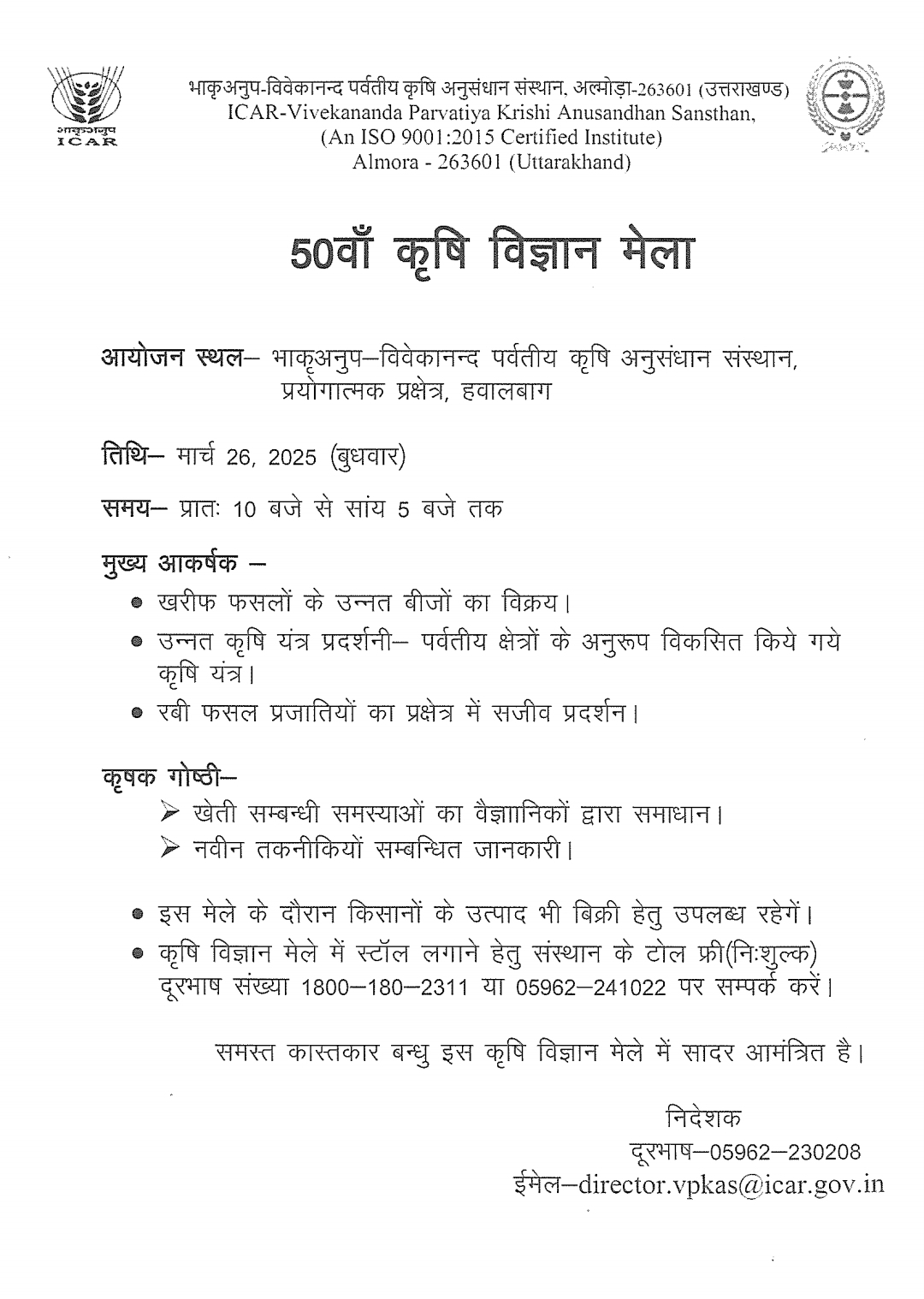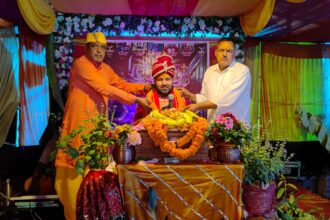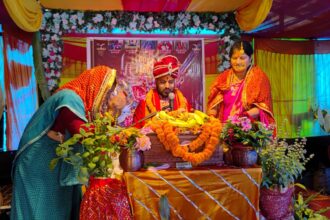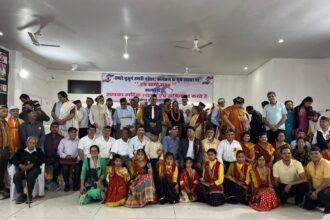Presented under ‘Bal Utsav 2025’ by Garhwali Kumaoni Jaunsari Academy with support from Delhi Government
New Delhi |
As part of Bal Utsav 2025, the Garhwali Kumaoni Jaunsari Academy, with the support of the Delhi Government, staged a powerful and emotional play titled ‘Jhan Diya Kuli Begara’ at Katyayani Auditorium, Mayur Vihar. Conceptualized, written, and directed by Meena Pandey, with Geetika Mehta as co-director, the play shed light on the colonial-era Kuli Begar system in Uttarakhand — a form of forced labor abolished through what Mahatma Gandhi termed a “bloodless revolution.”
Remembering a Non-Violent Rebellion
Set against the backdrop of British colonial rule, the play dramatized the oppressive Kuli Begar system, under which common people were forced to carry heavy loads for the administration without wages. The movement against this practice, led by freedom fighter Badri Datt Pandey, peaked during the Uttarayani fair in January 1921 in Bageshwar, where people publicly threw Kuli registers into the Saryu River, pledging to never again comply with the exploitative practice.
The powerful enactment received an overwhelming response from the audience, which remained engaged and emotionally moved throughout the performance.
Cast and Performances that Moved the Audience
A group of talented child artists brought history to life on stage:
Neha as Laxmi
Bhavya Chandra as Badri Datt Pandey
Shanaya Chaudhary as Hargovind Pant
Daksh Rawat as Mahatma Gandhi
Srijan Pandey as Patwari
Sarthak Negi as Ardali
Alia as Freedom Worker
Jahnavi as British Officer Diwell
The depth and sincerity of their performances earned them thunderous applause and heartfelt appreciation from the audience.
Technical Excellence and Artistic Support
The play’s musical arrangement was curated by Jeevan Chandra Kalkhuniya, while renowned makeup artist Hari Kholiya handled the character styling, enhancing the realism of the period drama. Suchita Sahu played a crucial role in anchoring and coordinating the program.
A Director with a Vision
Meena Pandey, currently residing in Sahibabad, Ghaziabad, has been actively involved in theatre for the past 8–10 years. She has acted in several productions and directed five plays.
Speaking about the motivation behind this work, she said:
> “Our goal was to help children connect with the freedom fighters of Uttarakhand, whose sacrifices are often forgotten. The Kuli Begar movement is a symbol of how united, non-violent resistance can defeat oppression.”
Strong Ensemble of Supporting Performers
The supporting cast included Shanaya Rawat, Ritik, Ekta, Sakshi, Maanvi, Nisha, Nirmala, Shagun, Lakshmi, Vivaan, Yuvaan, Saraswati, Purnima, Samriddhi Pandey, Adira, Anshika, Rashi, and Shivani, all of whom contributed to the energy and authenticity of the production.
A Packed House and Esteemed Audience
The event was graced by notable dignitaries including Raju Tiwari, Mr. Manral, K.N. Pandey, and K.S. Bisht (Joint Secretary, Parvatiya Kala Kendra), along with Rakesh Sharma and many other guests. The auditorium was filled to capacity, and the crowd responded with standing ovations, long rounds of applause, and visible emotion throughout the play.
—
Conclusion
‘Jhan Diya Kuli Begara’ wasn’t just a theatrical presentation — it was a moving tribute to Uttarakhand’s lesser-known freedom movement and a powerful educational moment for today’s youth. Plays like this reinforce the importance of cultural memory and serve as a reminder that non-violent resistance can indeed bring about profound change.
Powerful Stage Performance of ‘Jhan Diya Kuli Begara’ Highlights Uttarakhand’s Forgotten Freedom Struggle

Leave a comment
Leave a comment











